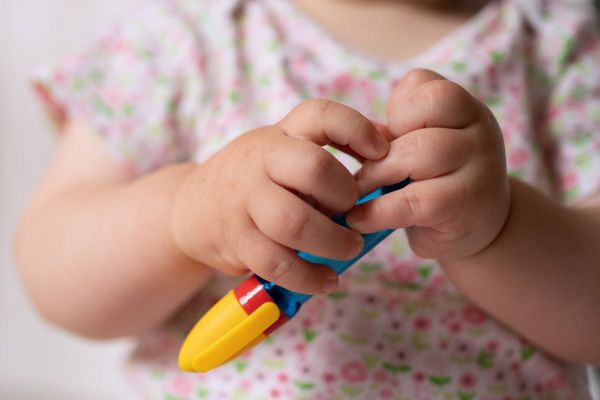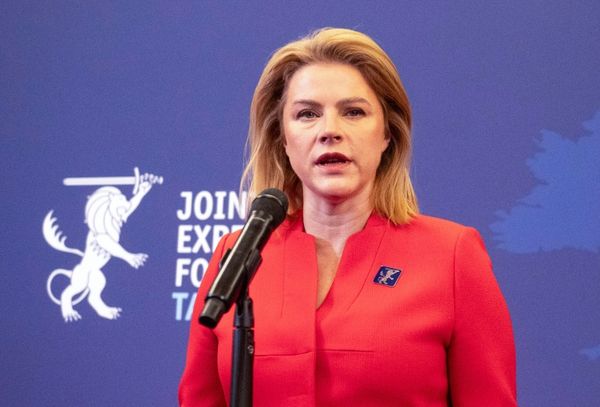
I’m relieved to see Abdul’s body. He’s in good nick, I think.
I had been worried about how he would look, as I agreed to video call his friends in Melbourne’s Immigration Transit Accommodation (MITA) during the prayer service*. They wanted to say goodbye.
Abdul Aziz, a 23-year-old Afghan asylum seeker, had died in detention eight days earlier, late on the evening of July 12. That’s the last time his friends had seen him; when he was wheeled into an ambulance and driven away through the multiple locked gates and high fences that surround the centre.
I had seen his feet in phone footage sent to me by others in detention the day after his death. Guards, then medical staff were attempting CPR and one of his friends — a fellow asylum seeker — told me his feet looked purple.
An autopsy was performed and his body was released to members of Melbourne’s Afghan community seven days later, on the next dark Friday night. He was taken to a funeral parlour inside an industrial park in the city’s south-east. This is where I see him.
Warning: the below video contains images of Abdul’s body.
Abdul arrived in Australia alone, an Afghan teenager seeking asylum in 2013, as a 17-year-old unaccompanied minor, via Pakistan and Indonesia.
Assessed as vulnerable young person, Abdul was released into the community. Lawyers told me that aged about 19, Abdul was convicted of car theft. Abdul subsequently served four months in a low-security facility and when his bridging visa was cancelled in 2017, he was put back into immigration detention.
Abdul hadn’t told his few friends in the community that he was in detention. One shows me screenshots of their conversations to prove it. “See? But he could have told me, I was put in detention when I first got here.”
Abdul’s friends in detention and his family tell me he thought he was going to get out soon.
Abdul’s body is being flown back to his parents and sisters, none of whom could afford to make the journey to retrieve him. This will be the first time Abdul’s mother has seen him in six years. The paperwork for his journey back notes “special handling — human remains”, instructions for his body to be dropped off at the freight terminal at Melbourne airport, and the weight of his coffin: 140kgs.
Abdul skyped his mother every day. He had called her in the hours before he died and said, “I have a weight on my chest”.
These calls were no small thing. Asylum seekers who arrived by boat were not allowed personal phones in Australia’s immigration detention centres until a court ruling last year. Before that Abdul made his way to a noisy shared computer room, patiently waiting his turn to call his mother. He did this every day, often multiple times.
The night after Abdul died, his uncle, Abdul Baseer, found me on Twitter. He was desperately trying to find out more information after members of the Afghan community contacted him worried it was Abdul who had died. He tweeted me saying “Ma’am, this boy is my nephew”.
He sent me pages of court documents. Abdul had always sent documents to his uncle for help translating and understanding what was happening with his case. Abdul’s uncle is not a lawyer. He told me he felt guilty for not always translating the emails straight away.
“I had a job, I was at work and he would send these long documents.”
I ask if it was confusing; if Abdul understood why he was still in a detention centre. “It killed him, he knew he shouldn’t be there, it crushed him,” his uncle says. “He was so worried about helping his parents who have nothing, they don’t even have the room for his coffin when it arrives.”
Inside and then outside the funeral parlour, men are praying. They’re sitting in a semi-circle in a car park performing the Salāt al-Janāzah, the Islamic funeral prayer. There is no official cause of death for Abdul. Autopsy results are expected this week. His family requested that an autopsy not be performed, but were told a partial one was done.
The Australian government placed one call to his family, four days after his death, to offer its condolences.
*Abdul’s family and the members of the community all consented to the filming of the prayers and Abdul’s body. They also consented for Abdul’s friends in detention to video call during the prayers because it was understood that the Australian government authorities (ABF and Serco) would not allow them to leave the detention centre to attend the prayers for Abdul.
For anyone seeking help, Lifeline is on 13 11 14 and Beyond Blue is 1300 22 4636.







